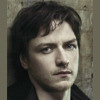Abraham Hargrove
 Memory will not lend one to cite Abraham Hargrove with adjectives like imposing or colossal. The best he could hope for at 59 would be average, no greater or lesser in height than any man you might come across traversing the lively streets of New York City. His weight, likewise, is unremarkable for a healthy man in the sort of shape one maintains through regular activity, weight roughly 155 lbs with minimal fluctuations depending on the availability of alcoholic beverages and the proximity of lively, some might say unscrupulous, company with the tendency to make running a habitual custom. His looks are common enough, and one wouldnt lightly claim he was unattractive.
Memory will not lend one to cite Abraham Hargrove with adjectives like imposing or colossal. The best he could hope for at 59 would be average, no greater or lesser in height than any man you might come across traversing the lively streets of New York City. His weight, likewise, is unremarkable for a healthy man in the sort of shape one maintains through regular activity, weight roughly 155 lbs with minimal fluctuations depending on the availability of alcoholic beverages and the proximity of lively, some might say unscrupulous, company with the tendency to make running a habitual custom. His looks are common enough, and one wouldnt lightly claim he was unattractive. The eldest of Theodore and Effie Hargroves three living children, Abraham was born in 1894 in Southampton, New York. Raised in the familys historic residence on Long Island, he came of age in 1912 and attended university at Princeton in New Jersey. However, to his fathers chagrin, the cavalier youth walked the tight rope of academic probation through three years of university. Despite evidence of capability and intelligence frequently proven through articles and essays, Abraham left Princeton without ever formally achieving a degree. Between the end of school and initiation of American hostilities in the War, roughly mid-1915 to early 1917, Abraham floated through New York, taking work submitting articles to magazines and newspapers, courting once and utterly failing, and working through a draft of novel that would never get published. The editor at the publishing company returned to manuscript remarking that through the novel possessed an undeniable original take on the Gothic, Abrahams style wouldnt sell. The prose imitated 19th century Romanticism yet never gained the enthralling traction of the classics hed attempted to pastiche.
Abraham was in the World War, his name and connections allowed him to be commissioned as a Second Lieutenant in the American Expeditionary Forces and saw enough action in France to make a lasting impact. Abraham was among the nearly 8,000 men then taken to Vladivostok during the intervention in the Russian Civil War. When finally discharged stateside after the Army returned from Siberia in April of 1920, Abraham took what he possessed and traveled across the Atlantic returning to Europe changed.
Between December of 1920 and October of 1924, Abraham lived drifting between Paris and the French Rivera, with frequent lengthy excursions to Corsica, Barcelona, Algiers, and Casablanca. Abraham found work again as an occasional journalist, writing several short stories, most still unpublished awaiting compilation as part of a collection, and gradually writing a novel that wouldnt be published until late in 1924. Dogs, Sorcerers, and Murderers was a semi-fictional hardboiled chronicle recounting the life of an American ex-patriot and occasional libertine in the Rivera with frequent allusions to the War and challenges and reflections on the former status quo, a scandal in Corsica involving art smuggling and opium, an affair with a woman
 who never receives much of a description but many who knew of Abrahams brief and scandalous but now annulled marriage with an Algerian woman lovingly imitating the Jazz Age ideal of the New Woman or Flapper believe her to be the real-life basis for the character, and a final weary overnight train ride through the Swiss Alps where the protagonist shares a room and a bottle of scotch with a Catholic priest.
who never receives much of a description but many who knew of Abrahams brief and scandalous but now annulled marriage with an Algerian woman lovingly imitating the Jazz Age ideal of the New Woman or Flapper believe her to be the real-life basis for the character, and a final weary overnight train ride through the Swiss Alps where the protagonist shares a room and a bottle of scotch with a Catholic priest.A distant cousin to Jackson Elias, the senior author served as a literary mentor to Abraham, corresponding through Abrahams time in high school and at Princeton, through War and his travels through Europe and North Africa, and meeting on those rare occasions when both men were in New York at same time.


